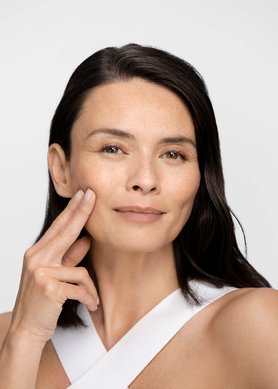Vaginal dryness only during the menopause or ?
Causes of vaginal dryness range from physiological factors, such as hormonal changes or medication side effects, to emotional and psychological issues like a lack of desire or even anxiety. Fortunately, no matter the cause, vaginal dryness has a solution.
But the most important is to talk about it with objective of finding out the source of the discomfort.
Why does vaginal dryness appears during menopause?
Vaginal dryness is a very common symptom in menopausal women. Vaginal mucus – sensitive to the dip in hormonal estrogen secretions - will progressively thin and lose its elasticity notably due to a decline in levels of collagen and fatty tissue. Vaginal dryness increases over the years, and results in burning, irritation, pain during sex or infections. It also contributes to urinary problems.
25 to 50% of women experience vaginal dryness during menopause
There are different solutions: if a hormonal treatment is prescribed, it will help with vaginal dryness. Local treatments based on estradiol, like vaginal ovules, rings or creams are effective. If an estrogen treatment isn’t wanted or advised, lubricants and vaginal hydrators can reduce symptoms temporarily. Recently there has been use of Vitamin E to improve vaginal dryness. However these local treatments are temporary solutions and no longer have an effect when the patient stops using them.
Vaginal dryness is a common and frustrating condition, but there are ways to alleviate the discomfort. If a lack of lubrication is causing painful sex, be sure to talk to your doctor about all possible treatments.
Key elements to remember
● Truth: vaginal dryness is a menopause classic
● Tips: hormonal treatments, lubricants, vaginal hydrators are your best friends if you use them on a daily-basis and long term
SOURCE:
1. Pastore LM, Carter RA, Hulka BS, Wells E. Self-reported urogenital symptoms in postmenopausal women: Women’s Health initiative. Maturitas. 2004; 49(4):292-303.








